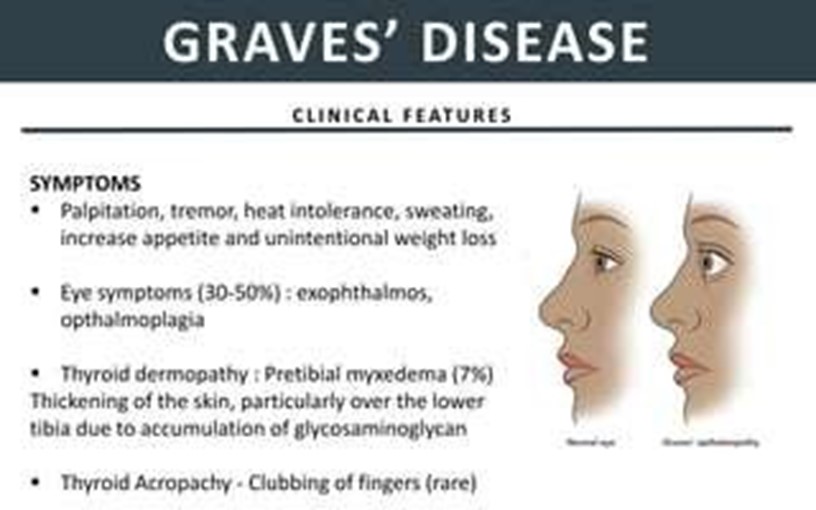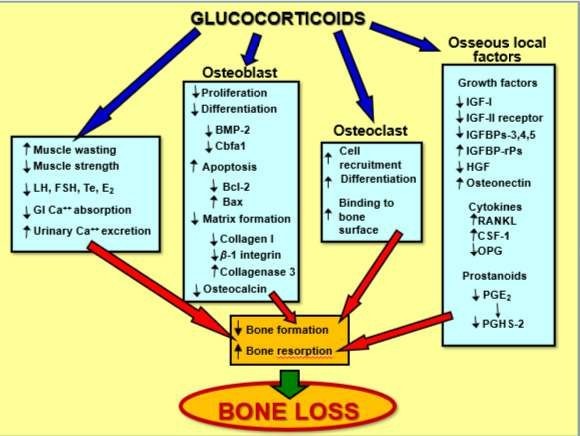A client who has Graves' disease is prescribed methimazole.
Which of the following effects should the nurse expect to see after the client has taken the medication for 2 months?
Weight loss.
Warmer skin.
Increase in pulse rate.
Increased sleeping.
The Correct Answer is D

Methimazole is an antithyroid medication that controls the overproduction of thyroid hormone in Graves’ disease.
One of the symptoms of Graves’ disease is difficulty sleeping due to the overproduction of thyroid hormone.
After taking methimazole for 2 months, the client’s thyroid hormone levels should decrease, leading to an improvement in sleep.
Choice A is wrong because weight loss is a symptom of Graves’ disease due to the overproduction of thyroid hormone.
Methimazole controls the overproduction of thyroid hormone and may lead to weight gain.
Choice B is wrong because warmer skin is a symptom of Graves’ disease due to the overproduction of thyroid hormone.
Methimazole controls the overproduction of thyroid hormone and may lead to cooler skin.
Choice C is wrong because an increase in pulse rate is a symptom of Graves’ disease due to the overproduction of thyroid hormone.
Methimazole controls the overproduction of thyroid hormone and may lead to a decrease in pulse rate.
Nursing Test Bank
Naxlex Comprehensive Predictor Exams
Related Questions
Correct Answer is C
Explanation

Some people believe that saw palmetto may help reduce symptoms of benign prostate hypertrophy (BPH).
The nurse should suggest that the client discuss this supplement with their provider.
Choice Ais wrong because black cohosh is not commonly used to treat BPH.
Choice Bis wrong because feverfew is not commonly used to treat BPH.
Choice D is wrong because garlic is not commonly used to treat BPH.
Correct Answer is D
Explanation

Prednisone is a corticosteroid that can be used to treat rheumatoid arthritis and other conditions by reducing inflammation and suppressing the immune system.
However, long-term use of prednisone can cause side effects, including bone loss.
Choice A is wrong because liver toxicity is not a common side effect of prednisone.
Choice B is wrong because hypoglycemia is not a common side effect of prednisone; instead, elevated blood sugar is a possible side effect.
Choice C is wrong because hemolytic anemia is not a common side effect of prednisone.
Whether you are a student looking to ace your exams or a practicing nurse seeking to enhance your expertise , our nursing education contents will empower you with the confidence and competence to make a difference in the lives of patients and become a respected leader in the healthcare field.
Visit Naxlex, invest in your future and unlock endless possibilities with our unparalleled nursing education contents today
Report Wrong Answer on the Current Question
Do you disagree with the answer? If yes, what is your expected answer? Explain.
Kindly be descriptive with the issue you are facing.
